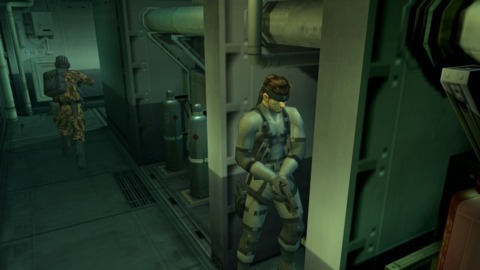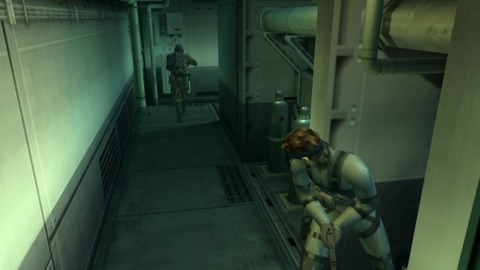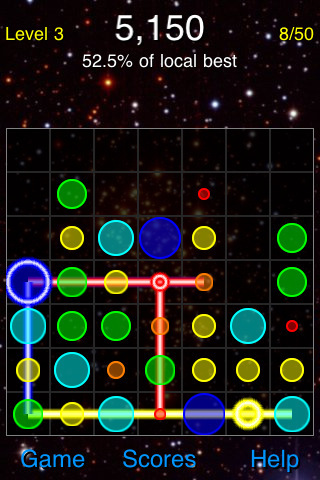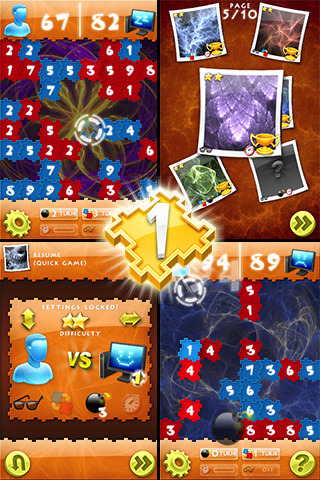Facing My Metal Gear Solid Demons
How our long-held opinions of certain games don't always stand the test of time.
A couple of weeks ago, Hideo Kojima dropped some not-so-subtle hints about the existence of Metal Gear Solid 5. The timing couldn't have been better. Days before that news broke, I had embarked on a quest to replay every game in the Metal Gear Solid franchise--a result of this year's yawning chasm of summer releases mixed with a desire to do something ambitious (if not a bit silly) on the 25th anniversary of one of my all-time-favorite franchises. With this journey ahead of me, I was excited. I was giddy. I was a little bit scared.
That fear stemmed from one particular game: Metal Gear Solid 2. I've always had a troubled relationship with Sons of Liberty, the game I've long considered my least favorite in the series by a fairly wide margin. Playing it for the first time back in 2001, I remember being put off by the surprising protagonist swap and a storyline that felt so much more convoluted than the game that preceded it. And that's the main plot thread--I'm not even talking about the painful soap opera that comes up every time you call up Rose to save your game. Remember the saga of Jack and Rose? Of course you do. Of course you do.
With memories like these in mind, I'd been regarding Metal Gear Solid 2 as the one speed bump on my journey through the delightfully ridiculous world of Solid Snake and company. It was a game that I was going to hunker down and force myself to get through, like it or not, in order to make this a complete trek through the series. Buckle up, old boy. You're doing this.
I suppose that's why I was so surprised when I put down the controller after the final boss fight and thought to myself, "Wow. That was…really good."
Time does strange things to our perception of older games. Opinions become stronger over the years, more stubborn and deeply rooted in our minds. I'd spent so many years telling myself how disappointing Metal Gear Solid 2 was that my opinion of it had become a sort of self-fulfilling prophecy. The game didn't stand the slightest chance of finding redemption until I actually took the time to sit down and return to the source of that disappointment.
I'd spent so many years telling myself how disappointing Metal Gear Solid 2 was that my opinion of it had become a sort of self-fulfilling prophecy.Instead of that underwhelming sequel to Metal Gear Solid I remember playing in 2001, what I found was a deeply enjoyable game that has managed to age quite gracefully over the years. Granted, it helps that I played MGS2 as part of the PlayStation 3 HD Collection. It's a terrific-looking port whose clean visual design lends itself very well to a higher resolution, with none of the awkwardness you often see in these sorts of remakes.
But more important than any visual treatment is how differently I reacted to Raiden as a protagonist. Eleven years ago, my snotty teenage self was up in arms over playing as Solid Snake for the first hour or two, only to have him replaced for the rest of the game by this weird new guy with his ghostly hair and nasally voice. Returning to MGS2 now, it makes a tremendous difference when you know what you're in for. You don't feel like Kojima's pulling the ol' switcheroo on you. Raiden is the guy you'll be playing as for the bulk of the campaign, and you can appreciate him for who he is rather than who he isn't.
Then there's the benefit of a new perspective. Raiden hasn't exactly been blessed with good luck since MGS2, having been turned into a cyborg badass who excels in battle partially because he just doesn't have that much left to live for. He is, in some ways, a very tragic figure. As I played through the Big Shell incident in MGS2, my mind constantly returned to the image of Raiden in MGS4, that tortured shell of his former self he would later become. That knowledge of his future made Raiden a much more sympathetic character this time around. Eleven years ago he was a nasally voiced stranger the game sprung on me out of nowhere; now he was a character whose fate I was deeply familiar with.


Frankly, I'm surprised by how much I was able to dislike Raiden in the first place. I don't think I gave MGS2 enough credit for anticipating the fan backlash against Raiden and using that as a springboard to have some self-deprecating fun. I mean, there's a 30-minute stretch in this game where Raiden (A) gets peed on by a patrolling guard, (B) has his man-bits awkwardly groped by a stranger, and (C) watches the president of the United States die in his arms. It's as though Kojima, sly devil that he is, managed to steal my Raiden-hating thunder without me even noticing it.
Of course, certain elements of MGS2 are just as underwhelming as I remember them being in 2001. There's probably no greater offender than the game's relatively ho-hum collection of boss fights. Whereas Metal Gear Solid let us explore the tortured psyches of Psycho Mantis and Sniper Wolf, MGS2 gives us a vampire and a fat guy on rollerblades. The one truly interesting member of Dead Cell is Fortune, and you don't even get the chance to fight her though the game spends so much time building her up as a supernatural force of destruction who craves nothing more than a righteous death.
Eleven years ago he was a nasally voiced stranger the game sprung on me out of nowhere; now he was a character whose fate I was deeply familiar with.Yet the comparison between this game's boss fights and Metal Gear Solid isn't entirely fair. The original Metal Gear Solid lived and breathed by its boss fights because you could barely go an hour without running into another eccentric villain waiting to take you down. MGS2, by contrast, is more focused on the time in between boss encounters where you get to set your own pace and figure out how to approach a given objective. As strange as this is for me to admit, the core gameplay is much better because of it.
MGS2 may not be an open-world game, but it is a very sandbox one. For every tool you had to get past guards in the original Metal Gear Solid, you have five in MGS2. Hiding bodies in lockers, shooting at a guard's radio so he can't call for backup, firing at steam pipes to scald enemies--there's so much you can do and play around with here. Equally impressive is all the small situational stuff that no reasonable game developer would bother with but that Kojima and company crammed into every last corner of this game--stuff like slipping on bird poop, shooting fruit in the tanker pantry, or watching in terror as Rose refuses to save your game when you've killed too many seagulls.
In an era where so many games are attempting to mimic the tightly scripted formula of Call of Duty, it's incredibly refreshing to go back to a game like Metal Gear Solid 2 with all its weird little secrets and eccentricities and reasons to mess around prolonging the time in between each major story event. It's proof that developers can do cinematic without the handcuffs.
It's kind of odd, actually, just how much of Metal Gear Solid 2 has been aided by the passing of time. Even the overarching narrative--a plot I remember disliking for its muddled, clumsy storytelling--resonates much more these days thanks to the parallels between the Patriots' quest to manipulate the digital flow of information and our own close calls with online censorship like SOPA.
As someone who places Metal Gear Solid and Metal Gear Solid 3 in his top five favorite games of all time, I can't tell you how much of a relief it has been to revisit the black sheep of the franchise and discover just how much I'm able to enjoy it 11 years later. It's a testament to how powerful our ability to build up an opinion in our minds can be, and that sometimes it's best to question what you've been telling yourself over the years. You might just be surprised with the result.
Got a news tip or want to contact us directly? Email news@gamespot.com


Join the conversation